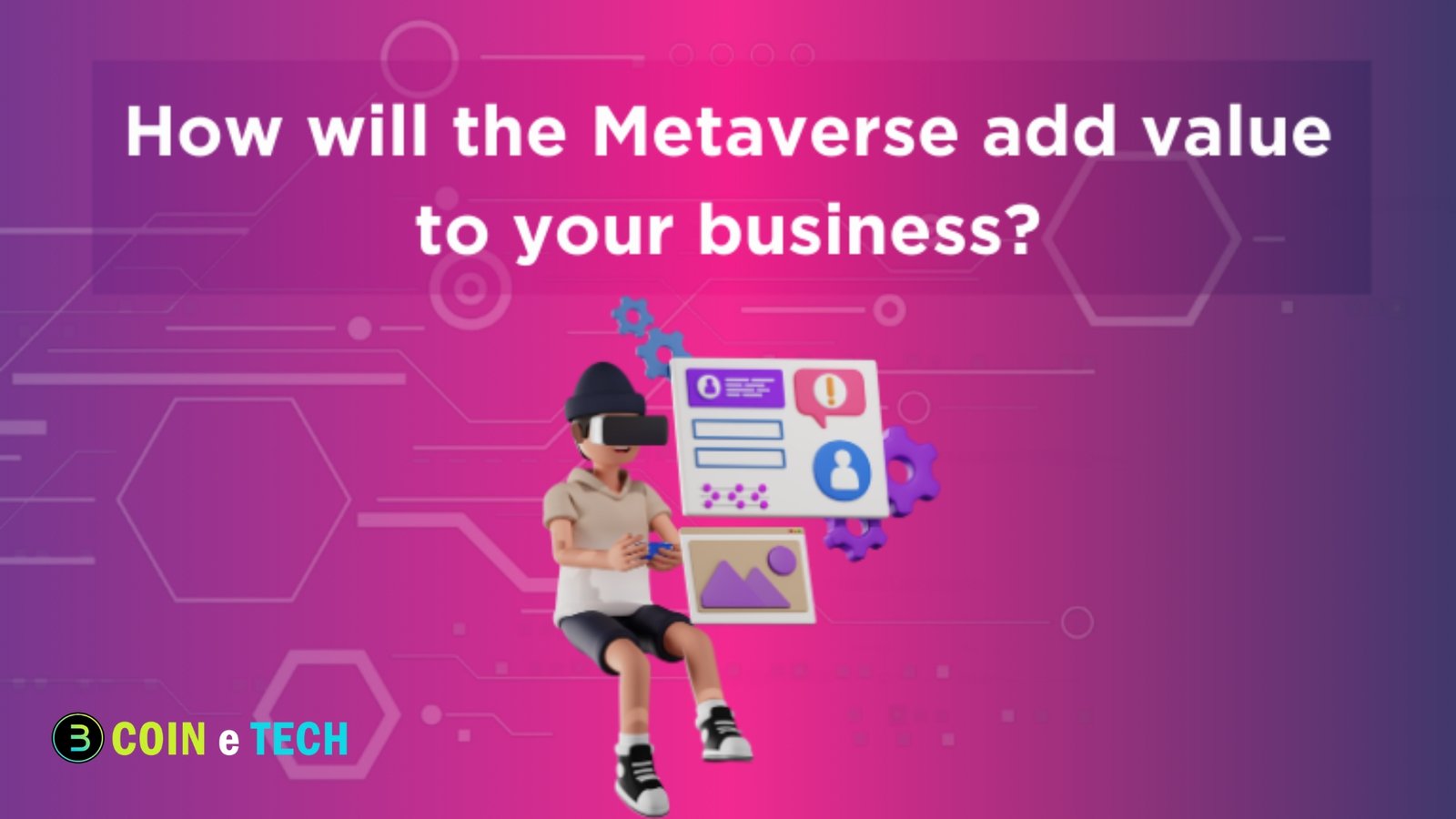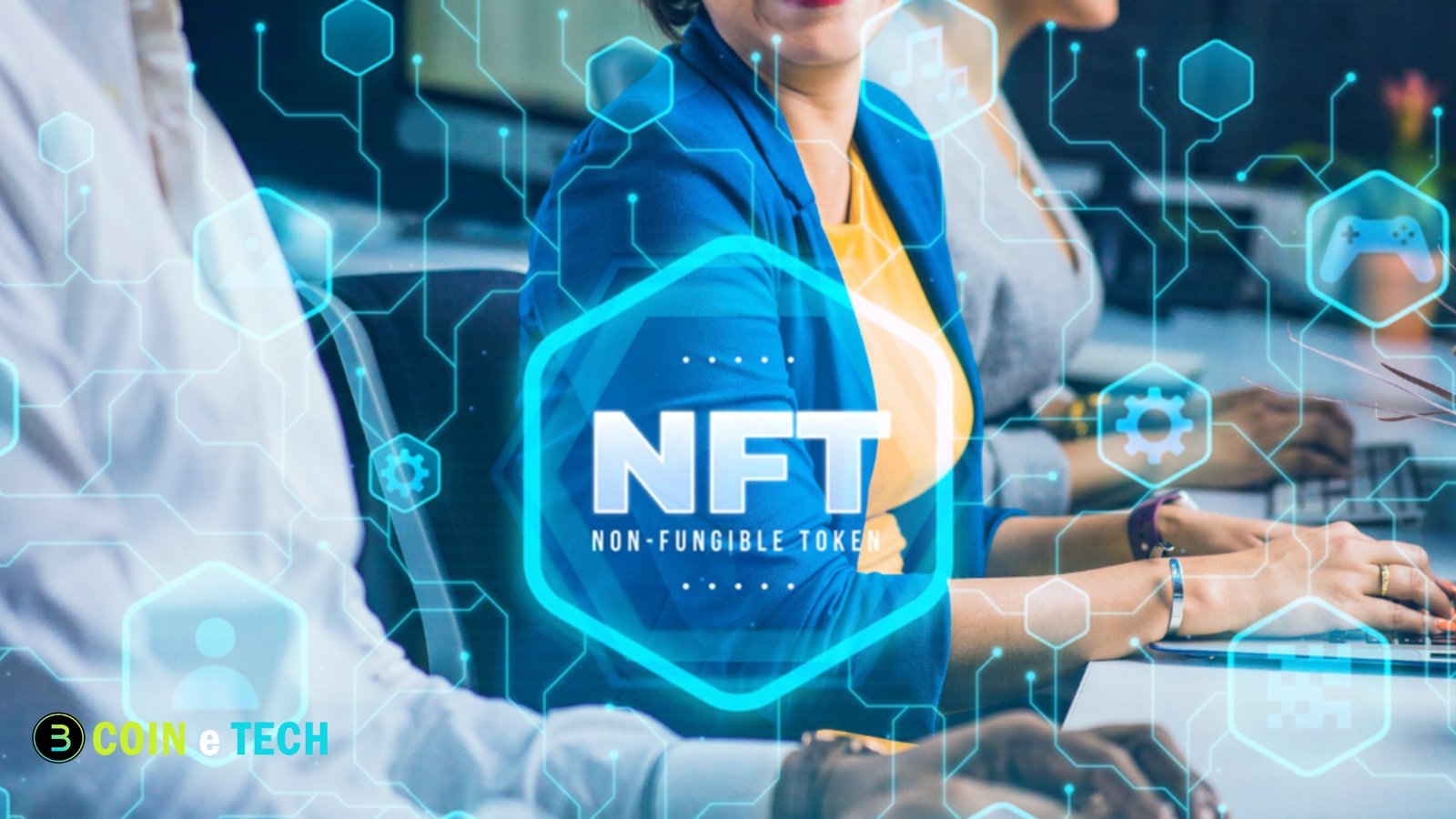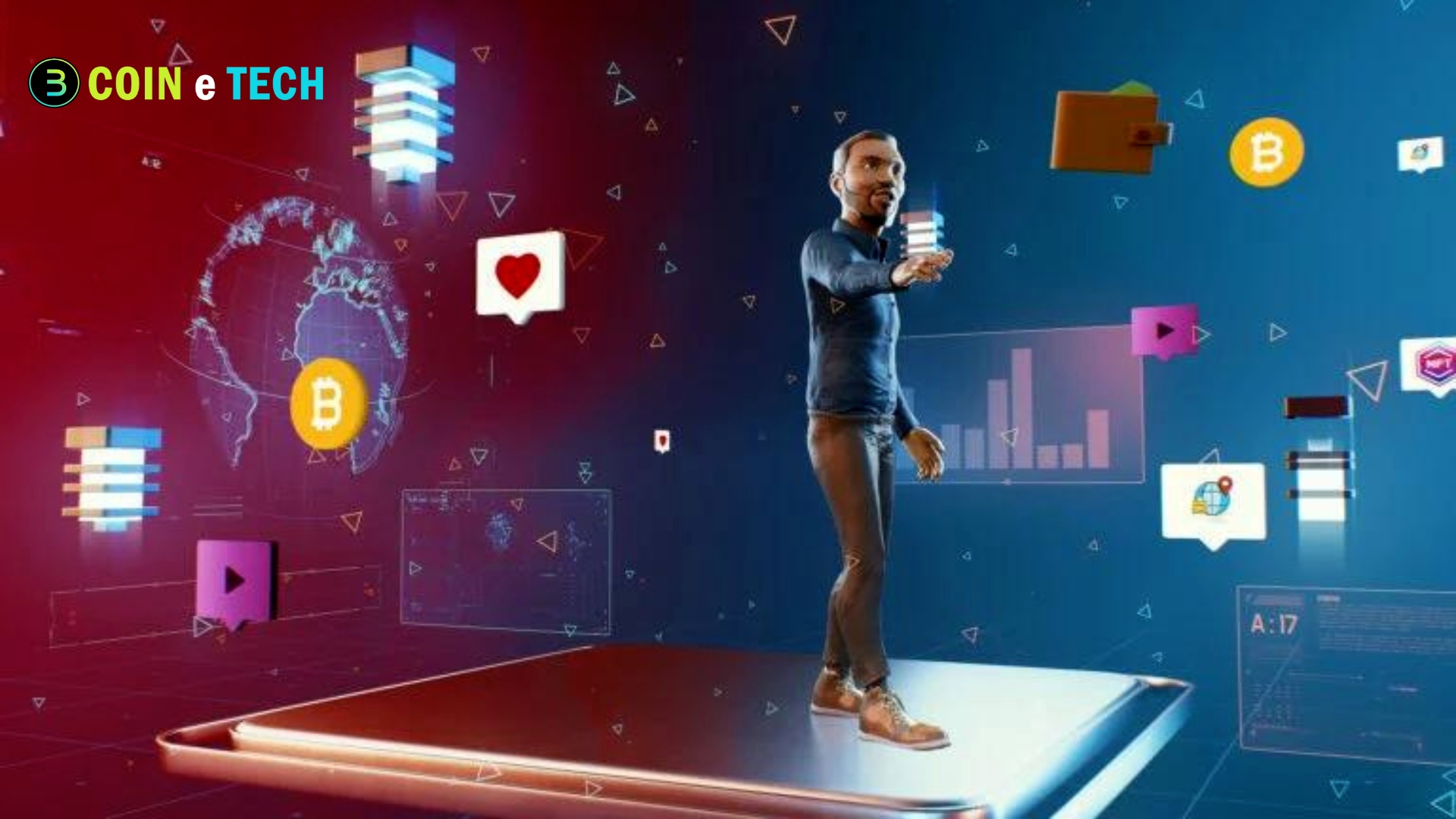Metaverse Affects Business. The metaverse has emerged as one of the most perplexing new technological phenomena in the last several years. Even as you read this, new literal and metaphorical definitions of the metaverse emerge. There has been an uptick in the tech industry, with concerns about the long-term effects of the metaverse on businesses.
Though some have speculated that it may be a virtual reflection of the actual world, most users see the metaverse as a three-dimensional extension of the internet. The metaverse has the potential to become a significant phenomenon, although its critics have put doubt on this claim. Some think the metaverse is just a rebranded version of virtual reality games with more features for players to interact with.
Beyond being a virtual reality (VR) internet or a new platform for immersive gaming, the metaverse encompasses much more. You can learn much about the metaverse’s effects on companies by studying how it bridges the gap between the virtual and real worlds. Several interoperable virtual places for various digital services and user activities, such as social interaction, can be accessible through the metaverse as well. The effects of metaverse technology on businesses will be further discussed in the following piece.
Why Is Metaverse Important for Businesses?
If you want to know how metaverse technology will affect businesses, you need a good definition of metaverse. You might think of the four primary parts of the metaverse as platforms, content and experiences, enablers, and hardware and networking infrastructure.
Metaverse technology stack platforms center on gaming engines. However, the hardware and infrastructure the metaverse relies on are the networks and devices. Metaverse technology also facilitates payment and security mechanisms. Each layer of the metaverse technology stack contributes to defining a metaverse experience, which is an interesting fact to remember.
Startups, large IT companies, VCs, private equity firms, famous brands, and venture capitalists constantly look for new ways to make money in the metaverse. The fact that the metaverse has attracted investments from VC and PE companies is strong evidence of its impact. The metaverse sector received around $120 billion in assets in the first half of 2022. The massive investment in the metaverse shows that businesses are eager to learn how it may help them tap into untapped value streams.
What Does the Market Reveal about Value Creation in Metaverse?
Reading a detailed description of the technology’s principles and how it works will allow you to evaluate the potential of the metaverse. On the other hand, newcomers may doubt the usefulness of metaverse technology. Companies are interested in metaverse technologies; therefore, you must find out what drives them.
Numerous features, including the provision of security and ultimate user control support the business applications of a metaverse. Depending on the answer, you might be able to deduce several factors that impact the enthusiasm of investors.
Some of the most compelling reasons for businesses and investors to put money into metaverse applications are:
- Consumer-centric brand marketing and engagement in the metaverse.
- Technological advancements in infrastructure are needed to run the metaverse.
- Readiness of the marketplace for metaverse technology.
- A new generation of metaverse applications focused on different areas such as socialization, virtual learning, commerce, and other essential use cases.
Report by McKinsey
An extensive analysis of the several elements impacting the value of metaverse businesses and what it means for the future of the metaverse can be found in a recent paper by McKinsey. Research shows that around 60% of consumers feel comfortable utilizing a pre-release version of the metaverse.
According to the survey, ninety-five percent of business leaders believe the metaverse will improve their operations. Many well-known industries stand to benefit from the metaverse’s potential transformations, including the media, healthcare, retail, and consumer and retail products.
The estimated value of the metaverse’s business impact is highlighted in the McKinsey report. The study estimates that by 2030, the metaverse’s influence on corporations will result in a $5 trillion economic windfall. The reliability of metaverse technology as a means to enter new markets and industries is growing. The metaverse opens new communication channels for B2B and B2C settings, in addition to new services and business models.
Value of Metaverse for Different Businesses
A technology transforming companies’ operations is predicted to be worth $5 trillion. It is of equal importance to determine which businesses will provide the highest ROI. A plethora of data on how the metaverse has affected many economic areas is at your fingertips.
To illustrate the point, a McKinsey analysis on metaverse value creation suggests that by 2030, metaverse technology might generate an economic value ranging from $2 trillion to $2.6 trillion. If current trends continue, the virtual learning industry might have a value boost of $180–$270 billion by 2030. The gaming industry is also expected to contribute between $108 billion and $125 billion to the economy.
Also Read: Best Job Skills in the Metaverse
Effect of Metaverse on Business
Evaluating metaverse technology’s capacity to deliver monetary value to companies is evidence of its potential. From its inception in literature and cinema, the metaverse has progressed from a conceptual framework for future organizations to a fully functional technology. Company heads should consider how the metaverse might be a boon to their operations.
Before their items even touched shop shelves, companies had already used online demonstrations to rethink their marketing strategies. Some of the most critical ways metaverse developments could influence corporate operations are as follows:
Business Training Advantages
Organizations use the metaverse most commonly to improve company training sessions. Metaverse software, AI, and technological breakthroughs in virtual, augmented, and extended reality can improve online training sessions. Companies can incorporate metaverse-based interactive experiences into training programs and skill development initiatives.
Training employees in a metaverse-enhanced immersive environment can help them apply what they’ve learned in the classroom to real-world scenarios. Concurrently, it is essential to consider another benefit of the metaverse for business purposes, such as training. Metaverse technology applications in corporate training might have a disruptive impact by 2030, potentially losing about 23 million jobs.
Support for Remote Work
A global pandemic brought the importance of digital transformation into sharp focus. Recognized brands and IT businesses swiftly adjusted with the help of their extensive resources. Concerns about the metaverse’s practicality in the business world also raise the possibility that it may make remote work more accessible
Policies allowing employees to work remotely or in a hybrid capacity will be in effect for some time after the pandemic has passed. Working remotely has benefits for both companies and workers. On the flip side, it can lead to issues like restricted employee engagement and a communication breakdown
The metaverse is the answer to all of your communication problems in your remote workplace. A typical grievance leveled against telecommuting is the impact it has on collaboration. For instance, if workers can’t meet face-to-face in real-time, it can hinder their capacity to communicate and collaborate.
The metaverse can positively impact remote workers by making their jobs more engaging and immersive. Workers can access their office as digital avatars in the metaverse while wearing virtual reality goggles. There may be more opportunities for collaboration and communication in the metaverse because it allows people to engage in real-time conversations.
New Shopping Experiences for Customers
Businesses would seek effective ways to capitalize on the value enhancements caused by customers’ changing buying behaviors. When analyzing the commercial consequences of the metaverse, it is vital to consider it from the users’ perspective. Brands may use the metaverse to create virtual shops where consumers may browse products in the same way they would in aan actual store. Thanks to the ease of online access, people don’t even have to leave the house to test out new products. The metaverse allows businesses to capitalize on interactive and immersive retail experiences.
Famous fashion houses with a metaverse presence include Balenciaga, Louis Vuitton, Gucci, and Nike. In the long term, efforts to enhance the metaverse shopping experience would be beneficial since they would cultivate trust.
To develop ideas for new collections, fashion brands, for example, might visit their virtual storefront in the metaverse. Customers can try on clothes in the Metaverse boutique before making a purchase. Customers will associate the brand positively with each phase of their ideal purchasing experience.
Using NFTs for Monetizing Digital Assets
With the use of metaverse technology, businesses from all over the world can participate in a global market economy. Metaverse stock markets and trading platforms may provide access to a broad range of investors. One way to help monetize assets is to use NFTs in metaverse business applications.
With its immutable record and easy ownership management capabilities, blockchain technology offers a strong foundation for NFTs. In the metaverse, users can trade digital assets like artwork, real estate, and automobiles using tokens that cannot be quickly melted down.
How much will NFTs in the metaverse change the way businesses operate? The effect of NFTs on the market proves that a younger generation is interested in them. Brands should take advantage of the fact that Metaverse NFTs can reach new types of consumers.
For example, consider the ‘Into the Metaverse’ collection by Adidas Originals; the sale of 30,000 NFTs generated about $23.5 million for the firm. Companies can find new ways to make money besides selling products and services in the metaverse.
Brands Become More Visible
Countless individuals, especially the younger generation, will become part of the metaverse. Having a new way to reach your target audience is the most significant advantage of the metaverse. Traditional marketing tactics, such as billboards and digital marketing best practices, aim to improve a brand’s reputation. However, customers aren’t actively engaged in conventional marketing, which is a major drawback.
The metaverse is having an impact on businesses, which means that customers can participate in branding initiatives for various businesses. For example, before buying, customers can get a sense of the product’s various features and functions. Ultimately, the metaverse can be useful since it allows businesses to build lasting customer relationships through genuine experiences.
Conclusion
The metaverse would positively impact company operations, as seen in the outline. Brands that have used metaverse technology for various purposes provide evidence of the manner in which metaverse can revolutionize business. Metaverse business value estimations for other industries are intriguing and more evidence of the technology’s promise.
To revolutionize traditional business structures, companies need to study the best ways to use the metaverse. Learn the basics of the metaverse and then hone your abilities in metaverse technology to revolutionize your company. Using reliable training resources, begin your path to becoming a metaverse professional for businesses.








